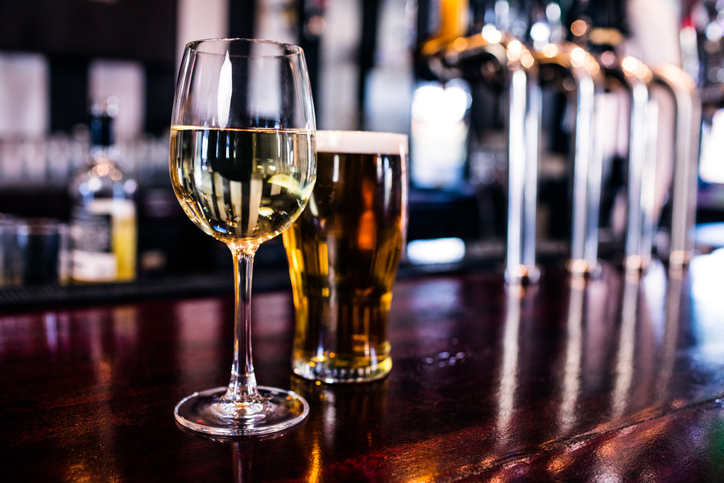Premises Licences – the Why and the How
A look at the issues involved in obtaining a premises licence
When would I need to get a Premises Licence and why?
A premises licence is required where licensable activities will be carried out at a premises. These licensable activities include:-
- The sale and supply of alcohol.
- The provision of late night refreshment.
- The provision of regulated entertainment, including:
- Plays.
- Films.
- Indoor sporting events.
- Boxing or wrestling entertainment.
- Live music.
- Recorded music.
- Dance performances.
This article focusses on a premises licence required for the sale and supply of alcohol and, specifically, the main focus is on the process of applying for a new premises licence.
If you are a business, an organisation or an individual wanting to sell or supply alcohol, then under the Licensing Act 2003, you must have a licence to do so. In England and Wales alcohol can only be supplied, sold and served in licensed premises. The effect of a premises licence is that it will authorise the use of any premises (which includes a vehicle, vessel, moveable structure or any place or part of a premises) for licensable activities, such as the sale and supply of alcohol.
There are two main types of licences, and these are:
- Premises Licences: any business or other organisation that sells or supplies alcohol on a permanent basis will need to apply for a premises licence. This type of licence attaches to the premises from which the alcohol is supplied or sold.
- Personal Licences: any person who plans to sell or supply alcohol or authorise the sale or supply of alcohol will need to apply for a personal licence. As the name suggests this licence is personal to the individual applied for it.
Below are the types of businesses and organisations that typically may need a premises licence:-
- Pubs and bars.
- Cinemas.
- Theatres.
- Nightclubs.
- Late-opening cafes.
- Takeaways.
- Village and community halls.
- Supermarkets.
How do I get a Premises Licence?
- Making an application:
To obtain a premises licence an application needs to be made to the local licensing authority. This is usually the local council in which the premises is situated.
The application will need to set out all of the details of the premises and the activities carried out at the premises. For example, the proposed opening times of the premises and whether alcohol is to be sold for consumption on or off the premises. A detailed plan of the premises will need to be supplied with the application.
The application will also ask about what conditions you are proposing to attach to the premises licence. Conditions are the “rules” you will abide by in order to comply and promote the licensing objectives that are set by the legislation and the Government. For example, a condition of the premises licence could be that you will install CCTV at the premises and keep the CCTV footage available for a period of at least 31 days. There are some mandatory conditions that must be included in every premises licence. These are set out in The Licensing Act 2003 (Mandatory Conditions) Order 2014 and The Licensing Act 2003 (Mandatory Licensing Conditions) (Amendment) Order 2014. Other conditions may be imposed or proposed by interested parties (such as the police), depending on where the premises is and what you intending to do.
2. Considering the Designated Premises Supervisor (“DPS”):
All businesses and organisations that are selling or supplying alcohol must have a DPS. A DPS is the person who has the day to day responsibility of running the business. For example, the DPS could be a manager of a pub. The DPS does not have to be at the premises at all times but they are expected to be able to act as the business’ representative and must be contactable at all times.
A DPS will need to hold a personal licence to allow them to sell alcohol on behalf of the business that has the premises licence. A separate procedure would need to be used in order to apply for a personal licence to sell and supply alcohol. Generally, you must be 18 years old or over and hold a relevant licensing qualification. An example of the qualification is the BIIAB Level 2 Award for Personal Licence Holders.
3. Notifying the ‘responsible authorities’:
Once the application for a premises licence has been submitted, the responsible authorities for the local area need to be notified of the application. The responsible authorities normally are made up of:
- The police.
- The local fire and rescue.
- The primary care trust or local health board.
- The relevant licensing authority.
- The local enforcement agency for the Health and Safety at Work etc Act 1974.
- The environmental health authority.
- The planning authority.
- The body responsible for the protection of children from harm.
- The local trading standards team.
- Any other licensing authority in whose area part of the premises is situated.
- Home Office Immigration Enforcement (on behalf of the Secretary of State).
The reason that all of the above authorities need to be notified is because they will be given the opportunity to make comments and/or objections in relation to the premises licence application. The responsible authorities may require some additional conditions to be attached to the premises licence in addition to the mandatory conditions.
4. Advertising the application:
For some applications, such as an application for a new premises licence, there is a requirement to advertise the fact that a premises licence has been applied for. This usually includes publishing a notice in the local newspaper and displaying a notice at the premises itself. There are specific requirements relating to the information that is required to be displayed in these notices.
5. The decision:
Provided that the application has been properly made and no representations are made by the responsible authorities or any other person, the licensing authority must grant the premises licence. As noted above, the premises licence will be subject to the mandatory conditions at the very least.
If, however, representations are made, the licensing authority will need to decide whether those representations are relevant to the licensing objectives set out by the Government and the legislation. If it is decided that any of the representations are relevant and, if these cannot be agreed with the applicant, then the licensing authority may hold a hearing to consider these.
At the hearing, the licensing authority has the following options:-
- They can grant the premises licence subject to modifying the conditions.
- They can reject the application in full or in part.
- They can refuse to specify as person as a DPS.
If you are unhappy with the decision of the licensing authority, it is possible to appeal at the Magistrate’s Court.
I have got my Premises Licence, what should I consider now?
The premises licence will need to be displayed at the premises at all times.
Once you have obtained a premises licence, it is possible to vary it by making further applications to the licensing authority. A simple example, and a necessary variation, would be where your DPS leaves the business. You are able to make an application to change the name of the DPS. It is also possible to make major variations of the premises licence. For example, if you wanted to now sell alcohol for consumption on the premises as well as for consumption off the premises, it is possible to make an application for this change.
Making an application for a premises licence and/or a personal licence can be tricky. This is especially true if subject to a hearing. At FSP, we have a dedicated licensing team who would be happy to assist you. Please do contact the team if you would like any further information or if you would like any assistance with your applications.

